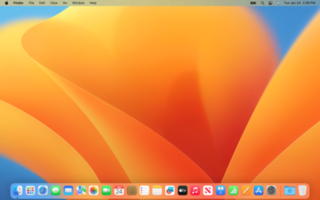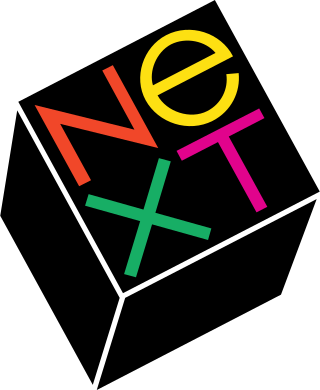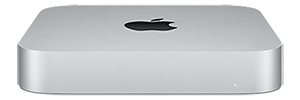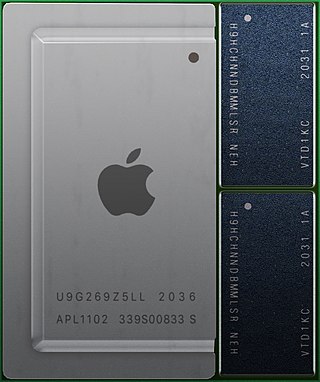Related Research Articles

Adobe Inc., originally called Adobe Systems Incorporated, is an American multinational computer software company incorporated in Delaware and headquartered in San Jose, California. It has historically specialized in software for the creation and publication of a wide range of content, including graphics, photography, illustration, animation, multimedia/video, motion pictures, and print. Its flagship products include Adobe Photoshop image editing software; Adobe Illustrator vector-based illustration software; Adobe Acrobat Reader and the Portable Document Format (PDF); and a host of tools primarily for audio-visual content creation, editing and publishing. Adobe offered a bundled solution of its products named Adobe Creative Suite, which evolved into a subscription software as a service (SaaS) offering named Adobe Creative Cloud. The company also expanded into digital marketing software and in 2021 was considered one of the top global leaders in Customer Experience Management (CXM).

The Apple II is an 8-bit home computer and one of the world's first highly successful mass-produced microcomputer products. It was designed primarily by Steve Wozniak; Jerry Manock developed the design of Apple II's foam-molded plastic case, Rod Holt developed the switching power supply, while Steve Jobs's role in the design of the computer was limited to overseeing Jerry Manock's work on the plastic case. It was introduced by Jobs and Wozniak at the 1977 West Coast Computer Faire, and marks Apple's first launch of a personal computer aimed at a consumer market—branded toward American households rather than businessmen or computer hobbyists.

macOS is a Unix operating system developed and marketed by Apple Inc. since 2001. It is the primary operating system for Apple's Mac computers. Within the market of desktop and laptop computers it is the second most widely used desktop OS, after Microsoft Windows and ahead of ChromeOS.

NeXT, Inc. was an American technology company that specialized in computer workstations intended for higher education and business use. Based in Redwood City, California, and founded by Apple Computer co-founder and CEO Steve Jobs after he was forced out of Apple, the company introduced their first product, the NeXT Computer, in 1988, and then the smaller NeXTcube and NeXTstation in 1990. These computers had relatively limited sales, with only about 50,000 units shipped in total. Nevertheless, their object-oriented programming and graphical user interfaces were trendsetters of computer innovation, and highly influential.
Silicon Valley is a region in Northern California that serves as a global center for high technology and innovation. Located in the southern part of the San Francisco Bay Area, it corresponds roughly to the geographical area of Santa Clara Valley. San Jose is Silicon Valley's largest city, the third-largest in California, and the tenth-largest in the United States; other major Silicon Valley cities include Sunnyvale, Santa Clara, Redwood City, Mountain View, Palo Alto, Menlo Park, and Cupertino. The San Jose Metropolitan Area has the third-highest GDP per capita in the world, according to the Brookings Institution, and, as of June 2021, has the highest percentage of homes valued at $1 million or more in the United States.

Aldus Corporation was an American software company best known for its pioneering desktop publishing (DTP) software. PageMaker, the company's most well-known product, ushered in the modern era of desktop computers such as the Macintosh seeing widespread use in the publishing industry. Paul Brainerd, the company's co-founder, coined the term desktop publishing to describe this paradigm. The company also originated the Tag Image File Format (TIFF) file format, widely used in the digital graphics profession.
The history of macOS, Apple's current Mac operating system formerly named Mac OS X until 2011 and then OS X until 2016, began with the company's project to replace its "classic" Mac OS. That system, up to and including its final release Mac OS 9, was a direct descendant of the operating system Apple had used in its Mac computers since their introduction in 1984. However, the current macOS is a Unix operating system built on technology that had been developed at NeXT from the 1980s until Apple purchased the company in early 1997.

Synopsys is an American electronic design automation (EDA) company that focuses on silicon design and verification, silicon intellectual property and software security and quality. Products include tools for logic synthesis and physical design of integrated circuits, simulators for development and debugging environments that assist in the design of the logic for chips and computer systems. In recent years, Synopsys has expanded its products and services to include application security testing.

Epic Games, Inc. is an American video game and software developer and publisher based in Cary, North Carolina. The company was founded by Tim Sweeney as Potomac Computer Systems in 1991, originally located in his parents' house in Potomac, Maryland. Following its first commercial video game release, ZZT (1991), the company became Epic MegaGames, Inc. in early 1992 and brought on Mark Rein, who has been its vice president since. After moving the headquarters to Cary in 1999, the studio changed its name to Epic Games.
Autodesk Media and Entertainment is a division of Autodesk which offers animation and visual effects products, and was formed by the combination of multiple acquisitions. In 2018, the company began operating as a single operating segment and reporting unit.

Nuke is a node-based digital compositing and visual effects application first developed by Digital Domain, and used for television and film post-production. Nuke is available for Microsoft Windows 7, OS X 10.9, Red Hat Enterprise Linux 5, and newer versions of these operating systems. Foundry has further developed the software since Nuke was sold in 2007.

The Mac is a family of personal computers designed and marketed by Apple Inc. Macs are known for their ease of use and minimalist designs, and are popular among students, creative professionals, and software engineers. The current lineup includes the MacBook Air and MacBook Pro laptops, as well as the iMac, Mac Mini, Mac Studio and Mac Pro desktops. Macs run the macOS operating system.

Mac Mini is a small form factor desktop computer developed and marketed by Apple Inc. As of 2022, it is positioned between the consumer all-in-one iMac and the professional Mac Studio and Mac Pro as one of four current Mac desktop computers. Since launch, it has shipped without a display, keyboard, and mouse. The machine was initially branded as "BYODKM" as a strategic pitch to encourage users to switch from Windows and Linux computers.

Unity Software Inc. is a video game software development company based in San Francisco. It was founded in Denmark in 2004 as Over the Edge Entertainment (OTEE) and changed its name in 2007. Unity Technologies is best known for the development of Unity, a licensed game engine used to create video games and other applications.
High-Tech Employee Antitrust Litigation is a 2010 United States Department of Justice (DOJ) antitrust action and a 2013 civil class action against several Silicon Valley companies for alleged "no cold call" agreements which restrained the recruitment of high-tech employees.

Emmanuel Mogenet is a software engineer, one of the investors and advisors behind Daedalean AI, a company dedicated to artificial intelligence for safety critical aviation applications.

The Mac transition to Apple silicon is the process of changing the central processing units (CPUs) of Apple Inc.'s line of Mac computers from Intel's x86-64 processors to Apple-designed systems on a chip that use the ARM64 architecture. CEO Tim Cook announced a "two-year transition plan" in his WWDC keynote address on June 22, 2020, and the first Macs with Apple-designed systems on a chip were released that November.

macOS Big Sur is the seventeenth major release of macOS, Apple Inc.'s operating system for Macintosh computers. It was announced at Apple's Worldwide Developers Conference (WWDC) on June 22, 2020, and was released to the public on November 12, 2020.

Asahi Linux is a porting project, to develop support for Linux on Apple hardware, specifically Apple silicon-powered Macs, allowing them to run alternative operating systems in addition to macOS. The software design project was started and is led by Hector Martin. Work began in early 2021, a few months after Apple formally announced the transition to Apple silicon. An initial alpha release followed in 2022. The project has been made challenging by the lack of publicly available documentation of Apple's proprietary firmware.
References
- ↑ Rowe, Robin (June 1, 2002). "Silicon Grail RAYZ". Linux Journal. Archived from the original on September 23, 2020. Retrieved October 17, 2021.
- ↑ Olsen, Stefanie (June 13, 2002). "Apple buys video effects technology". CNET. Archived from the original on July 13, 2012. Retrieved October 17, 2021.